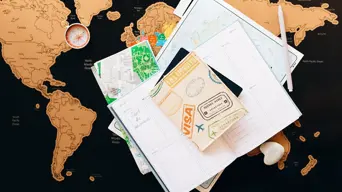European visa rejection rate for Africans ‘disproportionately high’
The European Union took in €130 million in rejected visa applications last year, most of which came from African countries.

Picture: Pixabay
Lester Kiewit speaks with Marta Foresti, Founder of LAGO a research and creative collective on migration, culture and the arts.
Listen to the interview in the audio below.
Many South Africans will know that in order to visit many countries you will need a visa.
To get a visa can be an inconvenient and expensive process, and there is no guarantee that the application will be successful.
ALSO READ:
Lamola, Schreiber addressing Ireland’s new visa regulations for South Africans – DIRCO
China's tourism contribution to SA hindered by visa challenges
A visa application fee costs €90 as of June, and you do not get a refund if your visa is rejected.
In 2023, the European Union took in €130 million in rejected visa applications, many of these coming from Africans.
This equates to roughly 1.625 million visa rejections.
“Roughly 90% comes from Asian and African countries… it disproportionately affects African countries which pay the most of this in €130 million.”
- Marta Foresti, Founder of LAGO
Foresti says Africa is the worst affected by these rejections, with countries like Nigeria, Ghana, and Senegal having rejection rates of around 40%-50%.
She says when looking at rejection rates it does seem that the rejection rates are higher in poorer countries.
“You cannot quite talk about correlation… but you can definitely see a relationship in terms of rejection rates and GDP.”
- Marta Foresti, Founder of LAGO
South Africa faces a higher acceptance rate than many other African country and has a number of bilateral agreements with European countries.
Part of the reason for the high rejection rates is due to what Europe described as a ‘migration crisis’ around 2013.
Scroll up to the audio player to listen to the interview.